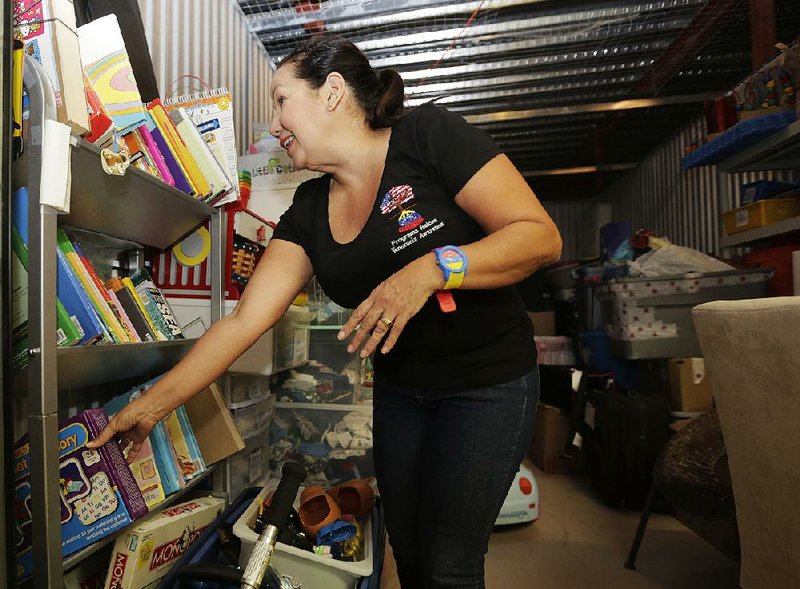MIAMI -- Volunteers at south Florida social service organizations say they have seen an increasing number of Venezuelans seeking help. It's a reflection of the deteriorating situation in Venezuela, where the opposition has held protests against President Nicolas Maduro for his handling of the economy and for a Supreme Court decision that briefly stripped the opposition-led congress of most of its power.
About 18,000 Venezuelans applied for political asylum in the U.S. in 2016, the largest group by nationality and more than double the 7,300 applications Venezuelans filed in 2015. Many of them are expected to be denied.
Many of the Venezuelans now seeking food and other assistance in south Florida were once middle-class professionals who decided they could no longer tolerate increasing misery, crime, food shortages and lack of medical care in their homeland.
"I never thought I would need to receive food, but the time has come and I don't have a choice," said 26-year-old Venezuelan lawyer Alejandra Mujica, who was among about 80 people waiting outside Our Lady of Guadalupe Catholic church near Miami's international airport one recent afternoon.
Venezuela was once among Latin America's most prosperous countries, with the world's largest proven oil reserves. During good times, Venezuelans who came to the United States largely did so as tourists or to go shopping.
But the Venezuelan economy is now in free fall because of a plunge in oil prices as well as poor economic planning under the socialist government created by the late President Hugo Chavez, who took office in 1999, and continued under his successor, Maduro. The situation has grown worse because of money flowing out of the country and because of a crime rate that is among the highest in the world.
Venezuela's economy shrank 18 percent in 2016 and is expected to contract another 8 percent this year. It has the highest inflation of any country, and its people scrounge for basic necessities.
"Venezuela has become unlivable," said Javier Corrales, a Venezuelan professor of Latin American studies at Amherst College in Massachusetts.
Mujica, the young lawyer seeking help at the church, said she barely survived while she lived in the Venezuelan city of Valencia, waiting in two-day lines to buy whatever was available in the supermarket. After she was robbed of her phone at gunpoint, she and her husband decided to flee in September with savings of $3,500 and not much else. "There was no way to go on," she said.
At a storage space near the church, 29-year-old Carmen Elena Rodriguez also found herself in unfamiliar territory. She earned a master's degree in education in Caracas and now sells drinks at a farmers market to support herself. "It's not easy what we are going through, but this assistance makes the road a little easier," she said as she picked up donated dishes, a lamp and other items.
Often the economic and political reasons that Venezuelans give for leaving their homeland are hard to separate.
Andreina Molina, 34, said she and her husband sold their electronics store and moved to the U.S. last year in part because of the economic deprivation and the crime in Venezuela, but also because she belonged to an opposition party and had been threatened for participating in anti-government marches.
"I came because of the insecurity, because of the political persecution, the lack of food and for my kids," she said.
The couple spent their $10,000 in savings on the birth of a baby and on other medical care. Molina's husband now drives a tow truck, and she sells homemade pastries. "It has hit us hard. Sometimes we don't even have enough to pay the rent," Molina said.
The number of Venezuelans in the U.S. has tripled to around 273,000 since the year after Chavez was elected. The vast majority have settled in the Miami area, which has a large number of people from Latin America but a high cost of living, especially for apartment rentals, which range from around $750 per month in nearby Brownsville to several thousand dollars per month in Miami.
"They sell their homes, they sell their cars and they come here with a little bit of capital that vanishes in a matter of months," said Eduardo Gamarra, a professor of political science at Florida International University.
A Section on 04/24/2017
